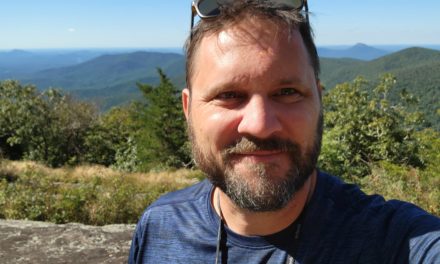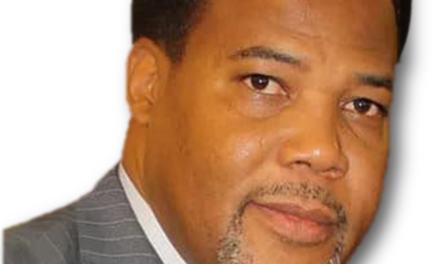Chandulal Dhanani is a transformative entrepreneur and philanthropist based in South Africa. As the founder of Dhanani Sustainable Ventures, he has spearheaded initiatives that merge innovation with tradition to revolutionize the textile and agricultural industries. A native of a rural farming community, Chandulal’s deep-rooted understanding of the challenges faced by farmers has inspired his mission to promote organic farming and sustainable textile production. His work prioritizes environmental stewardship, economic empowerment, and the preservation of cultural heritage. Through his leadership, Chandulal has revitalized countless rural communities, providing farmers with tools, education, and access to markets that foster long-term growth. Outside of his business ventures, he is a mentor, advocate, and philanthropist committed to building a better future for underserved populations.
What motivates you to focus so deeply on empowering farmers and their communities?
It all starts with my roots. Growing up in a farming village, I witnessed how much dedication and hard work goes into cultivating the land. My parents and neighbors put their hearts into their fields, yet they often faced insurmountable challenges. Whether it was unpredictable weather, market volatility, or the burden of expensive inputs, these obstacles trapped them in cycles of struggle.
That experience shaped me. I realized early on that the people who grow our food and supply the raw materials for industries like textiles are often the least rewarded. This paradox has driven me to focus on empowering farmers, not just for their benefit but for the broader communities that depend on them.
Farmers are the backbone of society. When they thrive, they lift entire regions with them. Empowering farmers means ensuring their work is valued, their methods are sustainable, and their futures are secure. It’s a cause that’s personal to me, and it’s one of the greatest sources of purpose in my life.
How do you reconcile traditional farming practices with modern innovations?
This is one of the most delicate and rewarding balances in my work. Traditional farming practices are often rooted in centuries of wisdom—methods passed down through generations that have sustained communities for ages. But modern challenges, like climate change and global demand, require new solutions.
My approach has always been to treat tradition with respect while embracing innovation as a tool to enhance it. For example, crop rotation, a time-tested practice, is incredibly effective for maintaining soil health. We integrate this with modern soil monitoring technology to optimize nutrient management and reduce water waste. Similarly, while many farmers use composting methods their ancestors employed, we’ve introduced techniques that accelerate the process and make it more efficient.
The key is collaboration. Farmers are more likely to adopt new methods when they see that these innovations build on their existing knowledge rather than replace it. By blending the best of both worlds, we’re able to create sustainable practices that honor heritage while preparing for the future.
What do you see as the biggest misconceptions about organic farming?
One of the most persistent misconceptions is that organic farming is less productive or less profitable than conventional methods. Many people assume that avoiding synthetic chemicals and fertilizers leads to lower yields, but this simply isn’t true in the long run. Once the soil has recovered from chemical dependency, organic farms often produce healthier crops with comparable yields.
Another myth is that organic farming is only for niche markets or affluent consumers. While it’s true that organic products often fetch a premium price, the broader impact of organic farming—on soil health, water conservation, and biodiversity—benefits everyone. It’s not just about luxury goods; it’s about creating a more sustainable agricultural system for the world.
Lastly, some people think transitioning to organic farming is too hard or expensive. While the initial shift can be challenging, we provide farmers with resources and training to make it manageable. Once they see the long-term benefits, they realize it’s not just viable—it’s transformative.
How do you ensure that your initiatives have a lasting impact on the communities you work with?
Sustainability is about more than just environmental practices; it’s about creating systems that endure. For any initiative to have a lasting impact, it must be built on three pillars: education, collaboration, and ownership.
First, we invest heavily in education. Farmers need the knowledge and tools to succeed, from understanding soil health to mastering organic certification processes. Education empowers them to take control of their futures rather than rely on external support.
Second, collaboration is vital. We work closely with farmers, artisans, and local leaders to co-create solutions that address their specific needs. This ensures that the initiatives are culturally relevant and widely accepted.
Finally, ownership is key. Instead of imposing top-down solutions, we encourage communities to take charge of the projects we start together. Whether it’s forming cooperatives or managing irrigation systems, giving people a sense of ownership ensures they remain invested in the long-term success of these initiatives.
What role do consumers play in the success of sustainable farming and textiles?
Consumers are a critical part of the equation. Every purchase is essentially a vote for the kind of world we want to create. When consumers choose sustainably sourced products, they’re sending a powerful message to the industry: that ethical practices matter.
Beyond buying decisions, consumers have the power to drive awareness. Sharing stories about sustainable products or asking brands about their sourcing practices creates a ripple effect. Brands are incredibly responsive to consumer demand, and the more people prioritize sustainability, the more the industry will adapt.
It’s also important for consumers to understand the journey behind the products they use. A cotton shirt, for example, isn’t just a piece of fabric. It’s the result of a farmer’s hard work, a community’s collaboration, and a company’s commitment to ethical practices. When consumers appreciate this, they become more mindful and engaged participants in the sustainability movement.
What challenges have you faced in scaling sustainable farming and textiles?
Scaling sustainability is a complex task. One of the biggest challenges is maintaining quality and ethics as we grow. When you’re dealing with larger supply chains, it’s easy for transparency to get lost. That’s why we’ve invested heavily in traceability systems that allow us to monitor every stage of production, from the fields to the finished product.
Another challenge is convincing stakeholders—from investors to retailers—that sustainability and profitability can coexist. Many people still see ethical practices as a cost rather than an investment. But by showcasing the success of our initiatives, we’ve gradually shifted this perception.
Finally, there’s the issue of awareness. Many farmers are still hesitant to transition to organic methods because they’ve been told it’s too risky. Overcoming this skepticism requires patience, education, and a lot of listening. Change doesn’t happen overnight, but when it does, it’s incredibly rewarding.
How do you measure success in your work?
For me, success is measured in stories, not just numbers. When I hear about a farmer who sent his daughter to university thanks to higher earnings from organic cotton, that’s success. When a village invests in clean water infrastructure because of the prosperity brought by sustainable farming, that’s success.
Of course, there are metrics we track—yields, incomes, market reach, environmental impact—but the real indicators of success are the human and community transformations. It’s about creating a cycle where every link in the chain benefits, from the farmer to the consumer.
What advice would you give to someone looking to make an impact in sustainability?
Start small but think big. Sustainability is an enormous challenge, and it’s easy to feel overwhelmed. But even small changes can create significant ripples. Focus on one aspect of the problem that resonates with you and build from there.
Collaboration is crucial. Seek out partnerships with like-minded individuals and organizations. The most successful projects I’ve been involved in were the result of teamwork and shared vision.
Finally, stay persistent. Changing systems and mindsets takes time. There will be setbacks, but every challenge is an opportunity to learn and grow. Remember, the work you’re doing is part of a larger movement, and every step forward matters.
What legacy do you hope to leave behind?
I hope my legacy is one of empowerment. I want the farmers and artisans I’ve worked with to feel that their lives and communities have improved because of our collaboration. I hope to inspire future generations to see sustainability not as a burden but as an opportunity to innovate and create lasting impact.
Ultimately, I want to leave behind a world where people and the planet are equally prioritized. A world where the land thrives, communities prosper, and every thread we weave tells a story of hope and resilience. That, to me, would be the greatest success of all.



